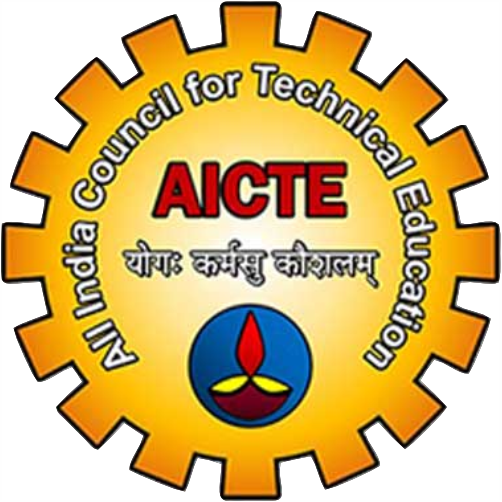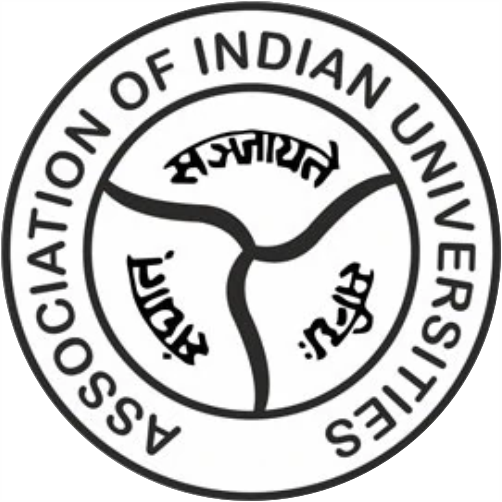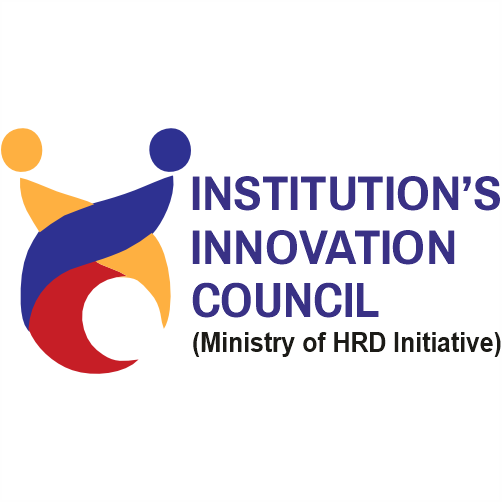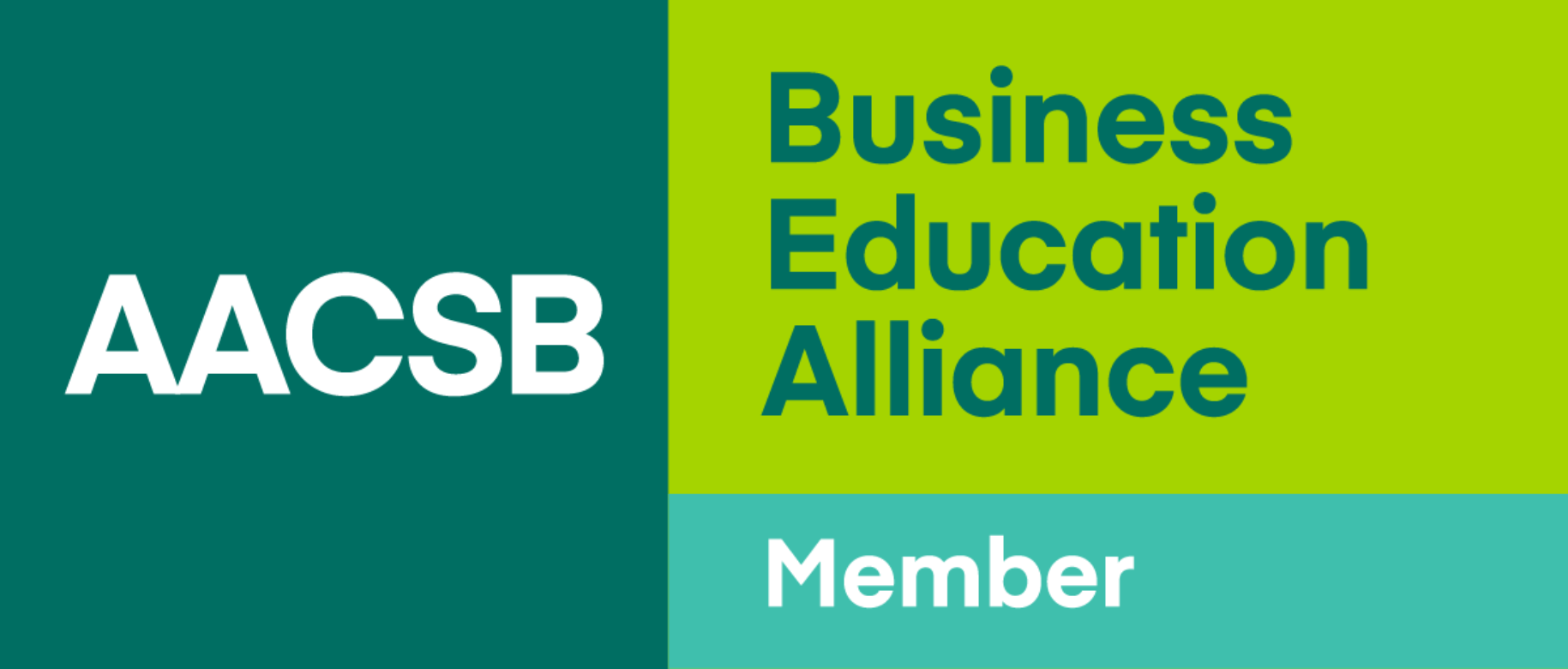Contemporary Innovations in Agri-Business Management (CIABM)
The seminar brings together researchers, educators, industries, agricultural producers and exporters, and agricultural entrepreneurs to discuss the issues, perspectives, dimensions, challenges, and opportunities for transforming agriculture to feed the world's ever-increasing population in a sustainable and profitable manner. Traditional agricultural practices have been disrupted by technological innovation in recent years. This National Seminar is devoted to presenting and examining various issues that are related to current problems in agriculture in India and abroad. The presenters are expected to discuss, among other things, how new technologies can help increase yields/productivity and profits while having a small and positive impact on the environment; how digital platforms enable information to flow in real time, how to build sustainable supply chains, and other emerging issues. Through this national seminar, CIMP offers a forum for the lively discussion of innovations, sustainability, technology, and financial investments in agriculture.
Chandragupt Institute of Management Patna (CIMP) has been established as an autonomous institution, with active support from the Government of Bihar in the year 2008. The Honourable CM Shri. Nitish Kumar happens to be the Chairman of the institute. It is approved by AICTE, Ministry of HRD, Government of India. The flagship programme of the institute is accredited by NBA and approved by AIU. CIMP is in Management (Rank Band: 101-125) as per NIRF-2023.
The Institute conducts the following major programmes:
- Fellow Programme in Management (FPM)
- Two-Year Post Graduate Programme in Management (PGDM)
- Two-Year Post Graduate Programme in Management (PGDM-IEV)
- Executive programme in management for Government officials (EXPM)
- Management Development programme (MDP)
The Agricultural and Processed Food Products Export Development Authority (APEDA) is an apex body authorised by the Government of India's Ministry of Commerce and Industry to promote the export of agricultural commodities and processed food products. It has its headquarters in New Delhi and five regional offices in Mumbai, Bengaluru, Hyderabad, Kolkata, and Guwahati, as well as 13 virtual offices. APEDA offers a wide range of export services and connects Indian exporters to the global market. It also offers referral services and recommends suitable partners for a joint venture. It has established a presence in almost all of India's agro-potential states to provide services to the agri-export community.
In the last few years, APEDA has taken a lot of initiative through enhancing the existing e-Governance system to support its multi-stakeholders, including farmers, exporters, government offices, farmer producer organizations, farmer producer companies, etc. A few of the initiatives include the introduction of a paperless system for application filing, processing and certificate issuance for Organic Certification bodies, including renewal of accreditation; and the creation of a Farmer Connect to provide a platform for Farmer Producer Organisations and Farmer Producer Companies to interact with exporters.
The National Bank for Agriculture and Rural Development, commonly known as NABARD, is a specialized financial institution in India that was established in 1982. Its primary focus is to promote sustainable and equitable agriculture and rural development through credit and other support services. NABARD plays a crucial role in providing credit facilities to farmers, agricultural cooperatives, rural artisans, and other rural sectors. It also provides funding support for various developmental activities such as irrigation, watershed development, and rural infrastructure. In addition to its lending operations, NABARD also provides technical assistance and other advisory services to support rural development programs. It has a unique role in promoting financial inclusion in rural areas, through initiatives such as the promotion of self-help groups and microfinance institutions. NABARD is considered a key player in the development of the rural economy in India, and its efforts have played a significant role in reducing poverty and improving the quality of life for rural communities.
The Indian Chamber of Food and Agriculture (ICFA) plays a critical role as a policy think tank, trade facilitation body, and development enterprise for the food and agriculture sector in India. As the world becomes more globalized, newer challenges continue to emerge that require proactive solutions to help India's food and agriculture sector grow and compete globally. ICFA is dedicated to creating opportunities for growth, value addition, and trade, while improving the income of farmers through its outreach policy, business agenda, and global partnerships. The council's state and district chapters, national councils, sector-focused working groups, and country-specific joint business councils all work together to represent the interests of all stakeholders at the national level and to position India's food and agriculture sector globally.
ICFA is also driving investments, entrepreneurship, and technology in the farm sector through global partnerships with the right institutions and by taking up projects, training, and facilitating farmers' producer organizations and agri start-up ventures to accelerate growth in farmers' incomes, productivity, and agribusinesses. With increased interest among major countries in the world to engage with India and explore opportunities for investments, trade, and cooperation, ICFA has become the dedicated body to facilitate such engagements through Joint Business Councils with various countries while promoting agri-produce from Indian states and guiding them on investments, marketing, and policy issues.
The forthcoming national seminar will primarily focus on the challenges, opportunities, and innovative strategies that can be adopted to enhance the export of agricultural products from India. At the same time we wish to discuss how the initiatives by NABARD has led to the development of rural India. The seminar aims to bring together policymakers, industry experts, researchers, and practitioners to facilitate a comprehensive dialogue and explore strategies for bolstering the agricultural sector in India. Researchers are invited to share research papers on all areas of agriculture, including:
- Development, promotion, and marketing of scheduled products
- Challenges faced by farmers, farmer-producer organisations
- Opportunities for start-ups in the agricultural export domain
- Future value chain opportunities
- Setting up the food processing industry
- Domestic reform in India to increase agricultural exports
- Effect of COVID-19 on exports of scheduled products and other stakeholders
- The effect of global supply chain disruptions on agricultural exports
- Value creation through agricultural exports
- Policy interventions are required after COVID 19 to increase agricultural exports
- Policies to support agricultural exports
- A government initiative to increase transport infrastructure
- Pathways to sustainable and productive agriculture
- Use of technology to improve agricultural products
- Strategies to improve the farm's financial performance
- Strategies to improve market access and agricultural exports
- Non-tariff barriers and agricultural exports
- Sanitary and phytosanitary barriers to India’s potential exports
- The possible role of climate change on India agricultural exports
- Agricultural credit and its impact on rural development.
- Microfinance institutions and rural poverty alleviation.
- Analysis of agricultural productivity and production efficiency in rural areas.
- Impact of climate change on agricultural production and rural livelihoods.
- Women empowerment through entrepreneurship and skill development in rural areas.
- Rural infrastructure development and its impact on economic growth.
- Role of rural entrepreneurship in poverty alleviation and economic development.
- Impact of government policies and programs on rural development.
- Rural marketing and supply chain management for agricultural products.
Patron:
Prof.(Dr.) Rana Singh, Director CIMP
Chairperson:
Prof. (Dr.) Ankit Sharma
Convenor:
Shri Kumod Kumar
Members:
- Prof. (Dr.) Vijaya Bandyopadhyaya
- Prof. (Dr.) Sibananda Senapati
- Prof. (Dr.) Debabrata Samanta
- Prof. (Dr.) Sriranga Vishnu
- Prof. (Dr.) Nilamadhab Mohanty
- Prof. (Dr.) Rishi Kant Kumar
- Abstracts should be of 250 – 300 words.
- Full paper should be of 3000 – 5000 words.
- Abstracts and full papers are to be sent as a MS-Word Document.
- Font style should be in ‘Times New Roman’.
- Size ‘12’ endnote font size ‘10’ is to be maintained.
- Text alignment should be ‘Justified’.
- Line spacing should be ‘1.5’.
- Full papers should be submitted in the APA citation style.
- Plagiarized submissions will be subject to disqualification.
- The organising committee reserves the right to disqualify any paper not related to the theme of the conference or not adhering to the submission guidelines.
- Abstract and Full Paper may be emailed to : ciabm@cimp.ac.in
- Selected papers will be published in the form of a book.
- 1st Prize – ₹25,000.00
- 2nd Prize – ₹15,000.00
All participants and paper presenters are required to register for the conference with payment of the registration fees, as applicable. Registration may be done in online or offline mode. There will be no change in paper as well as the name(s) of authors/ co-authors once a paper is accepted. Submission of the full paper is mandatory for consideration for the awards. We do not have any provisions for the payment of transport allowance or reimbursement of travel expenses.
- Academicians & Industry Professionals: INR 1,500
- Research Scholars, Post-Graduate Students & others : INR 1,000
- Participants (non-presenters): Indian: INR 500
- Overseas Paper Presenters/Participants: USD 50
Extended Abstract Submission: 15 August 2023
Acceptance of Extended Abstract: 15 August 2023
Full Paper Submission: 30 August 2023
Acceptance of Full Paper: 5 September 2023
Registration Deadline: 10 September 2023
Research paper presenters will be provided accommodation on the payment basis.
Ankit Kumar Chaturvedi
Conference Secretariat :
- Email: ncatm@cimp.ac.in
- Mobile: +91-9155142017
The 1st National Conference on Agriculture, Technology, and Management (NCATM 2024) aims to bring together scholars from various parts of India. This includes senior academicians, researchers, practicing managers, and policymakers in government and industry. They will share their knowledge and insights on recent trends and challenges in developing and adopting technology appropriate for use in Indian agriculture.
The theme of the conference is “Farm Equipment Production Technology”.
Research papers and case studies are invited on various aspects related the above theme, divided in the four main tracks mentioned below, but not limited to:
- Sustainable Farm Technology: Sustainable farm technology plays a crucial role in enhancing agricultural productivity while minimizing environmental impact, which aligns with the conference's focus on adopting appropriate technologies for Indian agriculture. Emphasizing resource-efficient practices will be key to addressing the challenges in the agricultural sector.
- Agri-Entrepreneurship: Agri-entrepreneurship plays a crucial role in driving innovation and sustainability in Indian agriculture, aligning with the conference's theme of integrating technology and management to enhance agricultural productivity. By nurturing entrepreneurial ventures, we can tackle challenges related to technology adoption and promote scalable, sustainable agricultural practices.
- Agri-Financing: Agri-financing is crucial for enabling the development and adoption of advanced agricultural technologies, ensuring that farmers have access to the necessary funds to invest in modern equipment and sustainable practices. By addressing financial barriers in agriculture, the conference can promote economic growth and technological innovation in the sector.
- Rural Development: Integrating advanced technology and innovative management practices in rural areas can drive significant improvements in agricultural efficiency and economic growth, enhancing agricultural productivity and ensuring sustainable livelihoods.
Chandragupt Institute of Management Patna (CIMP) has been established as an autonomous institution, with active support from the Government of Bihar in the year 2008. The Honourable CM Shri. Nitish Kumar happens to be the Chairman of the institute. It is approved by AICTE, Ministry of HRD, Government of India. The flagship programme of the institute is accredited by NBA and approved by AIU. CIMP is in Management (Rank Band: 101-125) as per NIRF-2023.
The Institute conducts the following major programmes:
- Fellow Programme in Management (FPM)
- Two-Year Post Graduate Programme in Management (PGDM)
- Two-Year Post Graduate Programme in Management (PGDM-IEV)
- Executive programme in management for Government officials (EXPM)
- Management Development programme (MDP)
The commitment to uplifting the socially and economically disadvantaged sections of Bihar's population has been a major focus of Chandragupt Institute of Management Patna (CIMP) since its inception. Initiatives such as providing education to underprivileged children and adopting villages and orphanages are steps taken in this direction. This impactful work has gained worldwide recognition and has brought laurels to the Institute.
The need to harness science and technology to transform rural India has been widely recognized. Translating Gandhiji’s concept of Gram Swaraj, our State has always focused on developing the self-reliance of local communities to alleviate poverty and improve the quality of life for the rural poor. Simultaneously, there is also a need to protect scarce natural resources using small-scale technologies and renewable energy.
The Centre for Appropriate Technology Management (CATM) was established in June 2016 at CIMP to help disadvantaged rural communities find better ways to improve their quality of life. The Centre aims to work at the national level, with a special focus on Bihar.
Appropriate technologies are those that are simple to apply, use local resources and labor, nurture the environment and human health, and are not capital- or energy-intensive. They provide small-scale, local, and sustainable solutions to reduce poverty, promote healthy communities, and protect natural resources.
The CATM aims to promote the development, diffusion, and transfer of technologies and processes that are suitable for the resources and needs of low-income communities in the state.
The vision of the Centre is to empower self-reliant local communities, especially in rural areas, to utilize locally available resources and skills to fulfill their basic needs such as food, water, energy, and waste disposal, all while fostering harmony with the environment.
The mission of the Centre is to promote the development and use of technologies that are appropriate for the needs of the rural poor in the State.
Patron:
Prof.(Dr.) Rana Singh, Director CIMP
Chairperson:
Prof. (Dr.) Vijaya Bandyopadhyaya
Co-Chairperson:
Prof. (Dr.) Ankit Sharma
Convenor:
Shri Kumod Kumar
Members:
- Prof. (Dr.) Ranjit Tiwari
- Prof. (Dr.) Santosh Kumar
- Prof. (Dr.) Sriranga Vishnu
- Prof. (Dr.) Sibananda Senapati
- Prof. (Dr.) Kalyan Prasad Agrawal
- Prof. (Dr.) Debabrata Samanta
- Prof. (Dr.) Nilamadhab Mohanty
- Prof. (Dr.) Rishi Kant Kumar
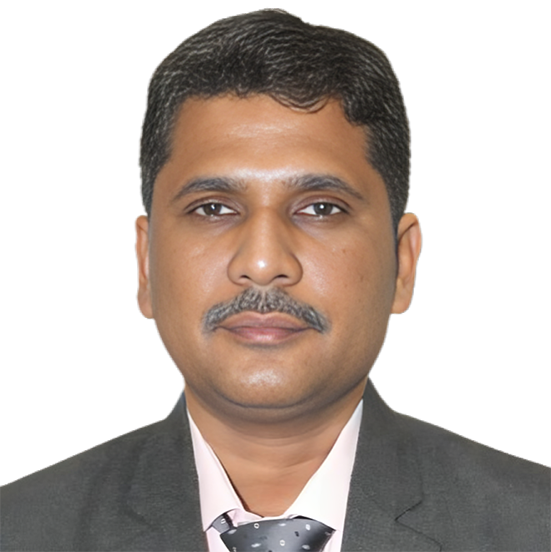
Dr. Anup Das
ICAR-RCER Patna
Dr. Anup Das has done his Ph.D in Agronomy from Indian Agricultural Research Institute (IARI), New Delhi. He has done his M.Sc. in Agronomy from Tamil Nadu Agricultural University (TNAU), Coimbatore and B.Sc (Agriculture) Central Agricultural University (CAU), Imphal.
Dr. Das is Fellow, National Academy of Agricultural Sciences and specializes in Integrated Farming Systems (IFS), Conservation Agriculture (CA), Organic Farming and Climate Resilient Agriculture and has more than 20 years Research Experience. He has published 215 research papers, including 82 in international journals, and has also authored 52 books and bulletins. He has received a number of awards in recognition for his outstanding work including Swami Sahajananad Saraswati Outstanding Extension scientist award 2016, ICAR, New Delhi; First Dr. HK Jain, CAU, Imphal- Award, for excellence in Agricultural Research in NE states of India, 2013-2014; Fakhruddin Ali Ahmed Award for outstanding contribution to Tribal Farming system, 2012 ICAR, New Delhi; ICAR Outstanding Interdisciplinary Team Research Award in Natural Resource Management, 2011 ICAR, New Delhi; Lal Bahadur Shastri Outstanding Young Scientist Award, 2010 ICAR, New Delhi; National Ground Water Augmentation Award, 2008, Ministry of Water Resources; and P.S. Deshmukh Young Agronomist Award, 2008, Indian Society of Agronomy (ISA), IARI, New Delhi.
- Abstracts should be of 250 – 300 words.
- Full Paper should be of 3000 – 4000 words.
- The Abstract and Full Papers are to be sent as MSWord Document.
- Font Style should be in ‘Times New Roman’.
- A uniform Font Size ‘12’ should be maintained, for footnotes Font Size ‘10’ is to be maintained.
- Text Alignment should be ‘Justified’.
- Line Spacing should be ‘1.5’.
- APA citation style may be used.
- The organizing committee reserves the right to disqualify any paper not adhering to the submission guidelines, or are plagiarized.
Please note that incomplete submission will not be sent out for the review process.
- 1st Prize – ₹25,000.00
- 2nd Prize – ₹15,000.00
All participants and paper presenters are required to register for the conference with payment of the registration fees, as applicable. Registration may be done in online or offline mode. There will be no change in paper as well as the name(s) of authors/ co-authors once a paper is accepted. Submission of the full paper is mandatory for consideration for the awards. We do not have any provisions for the payment of transport allowance or reimbursement of travel expenses.
- Industry Professionals, Experts & Delegates: INR 2,000
- Academicians: INR 1,500
- Research Scholars, Post-Graduate Students & others: INR 1,000
- Participants (Non-Presenters): INR 500
Registration Fee (Non-Refundable) may be paid online at the time of Registration at the conference portal.
Abstract Submission Closes : 25 August 2024
Notification of Abstract acceptance : 31 August 2024
Registration Starts : 31 August 2024
Full Paper Submission Closes : 15 September 2024
Research paper presenters will be provided accommodation on the payment basis.
Ankit Kumar Chaturvedi
Conference Secretariat :
- Email: ncatm@cimp.ac.in
- Mobile: +91-9155142017

